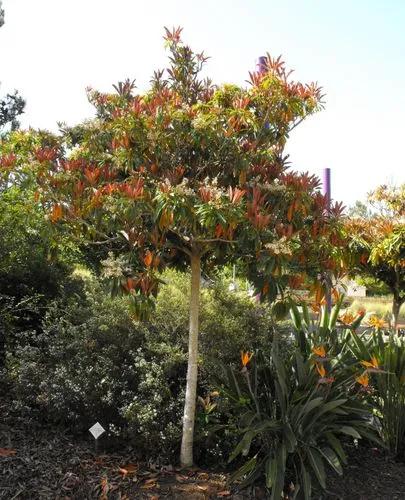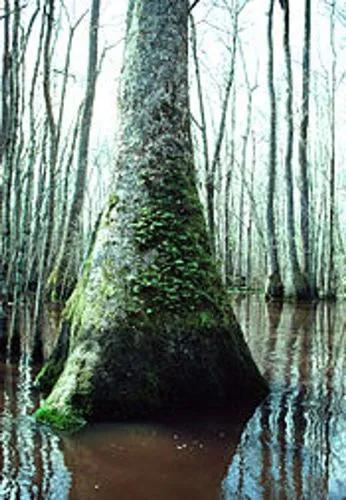Tilia americana, commonly called American basswood or American linden, is a medium to large deciduous tree which typically grows to 50-80’ (infrequently to over 100’) tall with an ovate-rounded crown. It is native to a variety of habitats from Quebec to the southeastern corner of Manitoba and far eastern North Dakota south to Oklahoma, Tennessee and North Carolina, with concentrations in forested areas of the Appalachian Mountains and along the Ohio River Valley to Missouri. Trees are found in both dry upland areas as well as moist, low woods. In Missouri, this tree typically occurs in rich woods, slopes, bluff bases and along streams throughout the State (Steyermark). This tree is noted for its (a) cymes of fragrant, pale yellow, late spring flowers, (b) small nutlets which follow the flowers and ripen by late summer, (c) mucilaginous sap, (d) noticeable winter buds, and (e) large ovate dark green leaves (to 6” long) with acuminate tips, serrate margins, often silvery undersides and uneven cordate bases. Flowers bloom in June in 5-10 flowered cymes. Each cyme droops from a showy, papery, narrow, leaf-like bract (to 5” long) where it is attached to the bract at a point somewhere between the base and midpoint. When a tree is in full bloom, bees often visit in such abundant numbers that humming can be heard many feet from the tree. Honey made from the nectar of these flowers is a prized gourmet item. Flowers have also been used to make tea. Syrup can be made from the sweet tree sap. Fall color is an undistinguished pale green to pale yellow. Winter twigs and buds are sometimes tinged with red.
American Basswood Care
Tilia Americana



What is the plant
How to Care for the Plant

Water

It prefers moist soil.

Sunlight

It can grow in semi-shade (light woodland) or no shade

Soil

Suitable for: light (sandy), medium (loamy) and heavy (clay) soils and prefers well-drained soil. Suitable pH: acid, neutral and basic (alkaline) soils.
Ease your plant care routine with PlantIn's personalized system.

Additional

Frequent consumption of the tea made from the flowers may cause heart damage

Popularity

1,403 people already have this plant 300 people have added this plant to their wishlists
What's wrong with your plant?
Related Plants
Discover more plants with the list below
Popular articles






